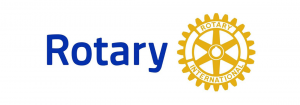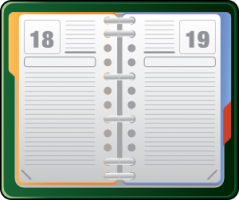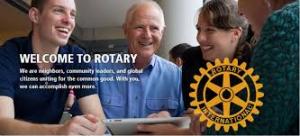Work of the Mercy Ships - Pat Duncan
Thu, Mar 10th 2016 at 6:00 pm - 8:30 pm
THE WORK OF MERCY SHIPS
The health statistics for the West Coast countries of Africa, including Sierra Leone, Liberia and Guinea, are shocking. In Sierra Leone, unemployment is around 80%; one in five children do not survive beyond five years; one in eight women die in childbirth; there are 26,00 deaths from preventable cause every year; and life expectancy is 43. And these appalling figures can be replicated in other developing countries in the area.
To seek to address these and related issues of sustainability in these countries, the initiative of Mercy Ships was founded in 1978. Mercy Ships currently operates the largest non-governmental hospital ship in the world, Africa Mercy, which was launched in 2007 and provides free health care, community development projects, community health education, mental health programs, agriculture projects, and palliative care for terminally ill patients in these under-developed countries.
Pat Duncan, from Dunblane is a volunteer with Mercy Ships. She spoke to the meeting of the Bridge of Allan and Dunblane Rotary Club on Thursday 10 March about her experience of working with Mercy Ships. She, and other volunteer members of the crew – which numbers some 400, drawn from up to 50 nationalities - work for periods of three or so months, paying their own way and contributing a monthly fee. The ship itself operates in situ for ten months of the year, with two months reserved for necessary re-equipping and re-fitting
Pat showed slides of the extraordinary transformations that the work of Africa Mercy achieves in the lives of those who otherwise would have suffered from a range of life-threatening or debilitating conditions. In the ten-month period of the most recent visit to Sierra Leone there were some 10,000 medical, dental and optical procedures undertaken. In addition, to the medical work, the crew was involved in supporting a variety of projects on-shore, including initiatives to provide clean water and sanitation, and promoting agricultural sustainability. Pictures of the changes achieved by the ship’s work on the land as well as in the ship’s operating theatres drew gasps of appreciation from members.
Africa Mercy brings hope and healing to the poor, mobilizing people and resources worldwide. The organization treats all patients without cost, and without regard to their religion, race or gender. The ship has four wards with 78 beds, and seven operating theatres equipped to full modern standards. There is a full complement of medical staff (again all volunteers) covering a very wide range of specialisations.
Not all volunteers are medically trained: the 400 strong crew needs the facilities one would expect in a small town, so Pat, a former art teacher, has, for example, worked in the bakery, in the laundry and in the general administration.
Members were quick to respond to Speaker’s Host Russell Clarke’s thanks to Pat for an extremely uplifting report of Mercy Ships’ work.
The meeting of the Rotary Club on Thursday 31st March will be held at the Westlands Hotel, Doune Road, Dunblane at 6.00 for 6-30pm. The speaker will be Lewis Faulds the Club’s supported Euroscholar, recently returned from his trip to Strasbourg, who will talk about his experiences there. Visitors are always very welcome. Anyone interested in attending should contact the Club Secretary, Iain Fraser at secretary@dunblanerotary.org. Tel: 01786 822751. More information can be found on the Club website: www.dunblanerotary.org.uk or the Facebook site: www.facebook.com/dunblanerotary.



.jpg)







